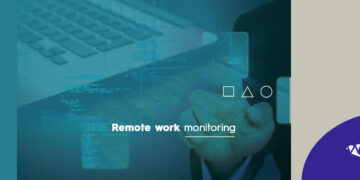A step-by-step guide to hiring remote employees legally and affordably. Learn how to stay compliant, reduce admin work, and grow your team internationally without the hassle.
Hiring remote talent used to be something only large companies did. But today, it’s one of the smartest ways to grow your team members while keeping costs low. The goal? Accomplishing it legally, efficiently, and easily.
This guide helps you take three key steps to start outsourcing or international hiring the right way.
Step 1: Choose the legal structure that protects your business
“What’s the safest legal setup to start hiring remote talent abroad?”
That’s the first and most important question to ask.
Every country has different rules. Some require formal contracts, while others have strict protections for remote employees. Failure to comply with these regulations could result in fines or more severe consequences.
The good news are you don’t have to set up a local entity or become an expert in global HR. You can use a recruitment service that takes care of contracts, labor laws, and tax compliance for you.
Legal compliance is one part of the equation, but building strong team connections is equally important. HR Magazine highlights how combining structure with a human approach can make international hiring more effective — and sustainable.
Step 2: Pick a hiring partner that fits your capacity
Hiring remotely sounds lean, until you realize how many moving parts there are. Payroll, legal documents, time zones, onboarding, benefits… it adds quickly.
Business owners often hit a roadblock: they seek global talent but want to avoid dealing with international admin tasks.
Ask yourself: Do I have the time to manage international hiring on my own?
If not, it’s worth exploring trusted providers who specialize in building remote teams for companies like yours. The right partner won’t just help with paperwork — they’ll help you reduce risk, stay compliant, and scale with less stress.
This article discusses the challenges of remote hiring. It explains how the right support can make compliance easier for growing companies.
Step 3: Set up a simple and repeatable process to scale
Now that the legal and setup groundwork is in place, it’s time to focus on how you’ll bring remote talent on board. A strong hiring process doesn’t need to be complicated, but it must be consistent.
Start by clearly defining what success looks like in the role. Use short video calls to evaluate communication skills and cultural fit. Before making a long-term commitment, try offering a small paid project to test collaboration.
Once you’ve found the right person, create an onboarding experience that removes confusion from the start. Set clear expectations, walk them through the tools your team uses, and share your working timelines from day one.
When your hiring process is simple, repeatable, and aligned with your company culture, remote hiring becomes scalable — not stressful.
Key takeaways
Hiring remote workers must be affordable and straightforward.
You must start with the right foundation. Choose a legal structure that protects your business.
Next, partner with a team that simplifies global hiring and ensures compliance with local laws.
Finally, build a hiring process that’s clear, repeatable, and aligned with your company culture. That way, you can scale with confidence and focus on growth not uncertainty. Are you prepared to explore how remote hiring can work for your business?
Watch a quick walkthrough that shows how other companies are building remote teams; legally and affordably.














